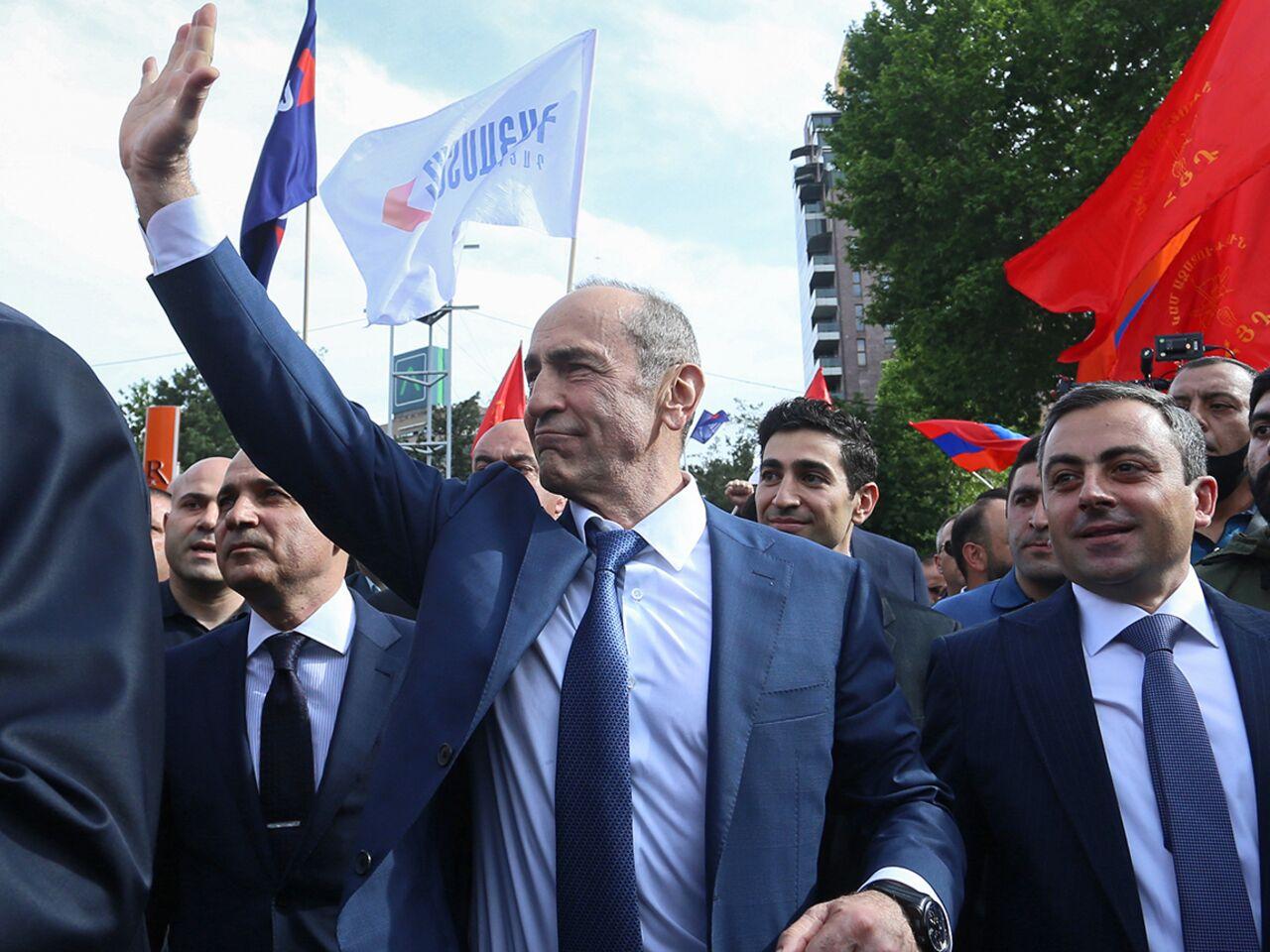Armenian Apostolic Church: Sowing seeds of hatred instead of cultivating peace Will Yerevan opt to cling to historical myths?
The current standoff in Armenia between the incumbent authorities and those advocating for a return to past grievances should be understood as more than just a political struggle. It's a clash of worldviews. On one side are those looking not just towards personal interests but towards the nation as a whole, while on the other side are those who cling to historical myths to secure their identity and existence. On April 10, Armenian Prime Minister Nikol Pashinyan delivered a significant statement while presenting the progress report of the Government of the Republic of Armenia for the 2023 program period (2021-2026) to the National Assembly. The statement highlighted the abovementioned divide. Pashinyan unequivocally declared that "historical Armenia" and the tangible Republic of Armenia are at odds, with the former posing a grave threat to the latter. This declaration, albeit belated, sent shockwaves through Armenian society.
"I hold no greater love for historical Armenia than myself. However, as Prime Minister, I refuse to prioritize historical Armenia over the Republic of Armenia. I refuse to prioritize anything over the actual Armenia," clarified Pashinyan at the time.
It's worth noting that Pashinyan's stance wasn't immediate. Indeed, his tenure has been marked by provocative actions and statements, including those that arguably contributed to the 44-day war. Yet, in this discussion, the focus isn't on dissecting Pashinyan's past decisions, including his dalliances with the Karabakh junta or his alignment with Armenian myths surrounding "miatsum" and "Artsakh." What's more significant is Pashinyan's recognition of the peril in perpetuating a narrative that sacrifices the Republic of Armenia for these historical myths, many of which have long been fostered by the Armenian Apostolic Church.
It's crucial to recall that on February 25, 1988, Catholicos Vazgen I penned an open letter to Mikhail Gorbachev, advocating for the annexation of the then Nagorno-Karabakh Autonomous Oblast (NKAO) to Armenia. While this historical event may have faded from memory, it underscores that even during turbulent times, there were voices within Armenia cautioning against the notion of "miatsum," recognizing it as a potential powder keg for the republic's future. However, it was the Armenian Apostolic Church that undertook the mantle of deceiving Armenian society, championing territorial claims against Azerbaijan and Türkiye.

It's imperative to recall historical events to better understand the present, particularly when considering the recent march on Yerevan led by Archbishop Bagrat Galstanyan, the Primate of the Tavush Diocese of the Armenian Apostolic Church. Armenian media have already proved that behind this provocateur in a cassock is the ex-Armenian President Robert Kocharyan. It is underlined that Archbishop Bagrat Galstanyan has long been engaged in political activities, hiding behind religion, including actively speaking at the rallies of Kocharyan's bloc back in 2022.
Questions naturally arise regarding the legitimacy of such overt involvement of the Armenian Apostolic Church (AAC) in secular affairs, especially considering that Armenia's Constitution stipulates the separation of religious organizations from the state (Article 17, paragraph 2). However, Armenia's political landscape often operates not according to constitutional principles, but rather in alignment with deeply ingrained myths. The AAC has historically played a significant role in shaping these narratives, even if it means straying into the political realm.
The AAC's involvement in historical events, including its provocative role during the 1915 events in the Ottoman Empire, is well-documented and acknowledged by historians. However, despite this historical context, many within Armenian society remain reluctant to openly confront or condemn the actions of the AAC, particularly its involvement in the Armenian-Azerbaijani conflict.
But Armenian society is not ready to remember and loudly recognise it, let alone condemn the actions of the AAC. So far, it is only ready for a quiet protest, which is expressed in ignoring by the overwhelming majority of Armenian citizens the show put on by the AAC and the revanchists led by Robert Kocharyan.

Even opposition Armenian media acknowledge the lack of widespread support for the recent spectacle orchestrated by Archbishop Bagrat Galstanyan and his backers. However, external forces are actively working to prop up this show. Their motives are transparent: they aim to facilitate the overthrow of the current government and install their proxies, who would prioritize the interests of another state over those of Armenia. This pattern of external interference in Armenian affairs is regrettably not new and has recurred throughout the nation's history, preventing it from achieving true independence.
Yet, there's hope that Armenia can finally break free from this cycle. The Karabakh conflict, as affirmed by official statements from Baku, is increasingly becoming a thing of the past. The process of mutual recognition of territorial integrity has commenced, alongside the ongoing delimitation and demarcation of borders. There's even a significant opportunity for Armenia and Azerbaijan to sign a peace treaty, representing a monumental leap towards a shared future characterized by good neighbourliness and mutual respect in our region.
In embracing this future, the myths perpetuated by the Armenian Apostolic Church and the Karabakh faction led by Robert Kocharyan—whose inflammatory rhetoric once included the notion of "genetic incompatibility" between Azerbaijanis and Armenians—will inevitably crumble. This fierce adherence to past myths by the AAC and the revanchist camp underscores their reluctance to embrace progress. Whereas Armenia, of course, would be better off soberly assessing the present and thinking about the future.








